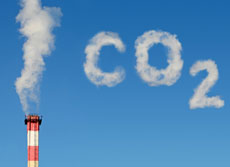Trump vs. Obama: Comparing Their First-Year Records
What Trump accomplish in his first year? In terms of energy & environment, less than Obama.
There’s been a lot of sound and fury, and many proposals are in the works. But what have the concrete results been so far? And how does Trump’s effectiveness stack up again Obama’s? I was prompted to ask that question by a note from Jonathan Rosenbloom, an environmental law scholar at Drake University. I had published a post about eight setbacks for the Trump Administration relating to energy and environment. Jonathan wrote to ask whether I’d considered doing ...
CONTINUE READINGScott Pruitt’s Faulty Logic
There’s a gaping hole in Pruitt’s argument for repealing the Obama’s climate change rule.
An earlier blog post pointed to a logical gap in the current EPA’s justification for repealing the Clean Power Plan (CPP), the Obama Administration effort to cut emissions from electrical power plants. He makes an argument that EPA can only base rules on actions that polluters can take within a facility, and jumps from there to the conclusion that Clean Power Plan is invalid. But the first point, even if true, doesn't justify the conclusion. Kirsten Engel from the...
CONTINUE READINGGuest Blogger Ken Alex: Working and Natural Lands, From Sources to Sinks
Post #6 in a Series on California Climate Policy by Ken Alex, Senior Policy Advisor to Gov. Jerry Brown
[This is the sixth post in a series expressing my view of why California’s actions on climate change are so important and how they will change the world. The introductory post provides an overview and some general context.] Roughly 80% of California land is protected or agricultural. That includes deserts, forests, wetlands, foothills, and multiple vegetative types, as well as farms, dairies, and ranches. While an exact inventory of emissions from working and na...
CONTINUE READINGSmall Hands/Small Infrastructure
It's not really an infrastructure plan. It's a plan for toll road and local tax hikes.
The initial response to Trump's infrastructure plan has been justifiably critical. Jennifer Rubin, my favorite conservative columnist, says the plan doesn't pass the straight-face test. A good deal of it is designed to encourage privatization of infrastructure or to eliminate environmental safeguards for new projects. I want to focus on a different aspect of the plan, however, the focus on revenue generation. Or in other words, user fees and beneficiary taxes, wh...
CONTINUE READINGNinth Circuit rules Clean Water Act permit required for indirect discharge to ocean waters
Maui County can't evade permitting requirements by sending wastewater to injection wells hydrologically connected to ocean waters
It was a great exam question (at least I thought so -- you'll have to ask my Environmental Law and Policy students if they agree): does the disposal of treated wastewater from a municipal wastewater treatment plant into the ground through injection wells located a short distance from the ocean require an NPDES permit under the Clean Water Act? Like most great exam questions, this one was drawn from real life. That means it has a real (albeit not necessarily conc...
CONTINUE READINGEight Setbacks for Trump
Trump hasn’t had things all his own way. Not by any means.
The Trump Administration has begun some bold initiatives but it’s too soon to know how they will fare. It also had some early success with blocking Obama’s regulation in Congress. But it has also had some significant setbacks, with courts or Congress rejecting positions it had embraced. Those setbacks make it clear that, bad as Trump is, he’s not likely to have things all his own way. Here are some of the major setbacks. The Tenth Circuit held that the governm...
CONTINUE READINGScott Pruitt: “What, me worry?”
The right question about greenhouse gas emissions is not whether there is an "ideal" global temperature regime, but what problems rapid regime shifts produce
(Readers of a certain age will understand the reference, and see the resemblance. If that's not you, never mind. But read on for a little less snark and a little more analysis.) According to the Washington Post, EPA Administrator Scott Pruitt wondered in a television interview Tuesday whether global warming "necessarily is a bad thing," characterizing as "fairly arrogant" any thought that "we really know what the ideal surface temperature should be in the year 210...
CONTINUE READINGTrump Administration to Hold California Hearing on Offshore Oil Drilling Proposal
Sacramento Hearing Likely to Be Both a Raucous and Fundamentally Flawed Affair
Legal Planet colleague Eric Biber this week has published a series of posts on the Trump Administration's controversial--and deeply flawed--proposal to open most of the nation's Outer Continental Shelf to offshore oil and gas development. I won't attempt to retread the ground Eric has ably covered, but want to highlight a major upcoming and related event in California. As part of the U.S. Department of the Interior's offshore leasing program under the Outer Con...
CONTINUE READINGThe impact of Trump’s offshore leasing plans
The Administration's leasing proposals are not likely to produce an offshore oil and gas boom unless other factors change
This post is the last in a three-part series examining the implications and context of the Trump Administration’s announcement of a proposal to dramatically expand offshore oil and gas development in the United States. The first post focused on the legal context; the second one on the political context. This last post synthesizes the law and politics and provides an assessment of the future impacts of the proposal. In my last post, I noted the ability of Nevada ...
CONTINUE READINGGuest Blogger Ken Alex: Methane, Black Carbon, and HFCs
Post #5 in a Series on California Climate Policy by Ken Alex, Senior Policy Advisor to Gov. Jerry Brown
[This is the fifth post in a series expressing my view of why California’s actions on climate change are so important and how they will change the world. The introductory post provides an overview and some general context.] One of the most important actions we can take to combat climate change is to halt the emission of short-lived climate pollutants (SLCPs). Once again, California is leading world action. The most prevalent climate pollutant, of course, is c...
CONTINUE READING









